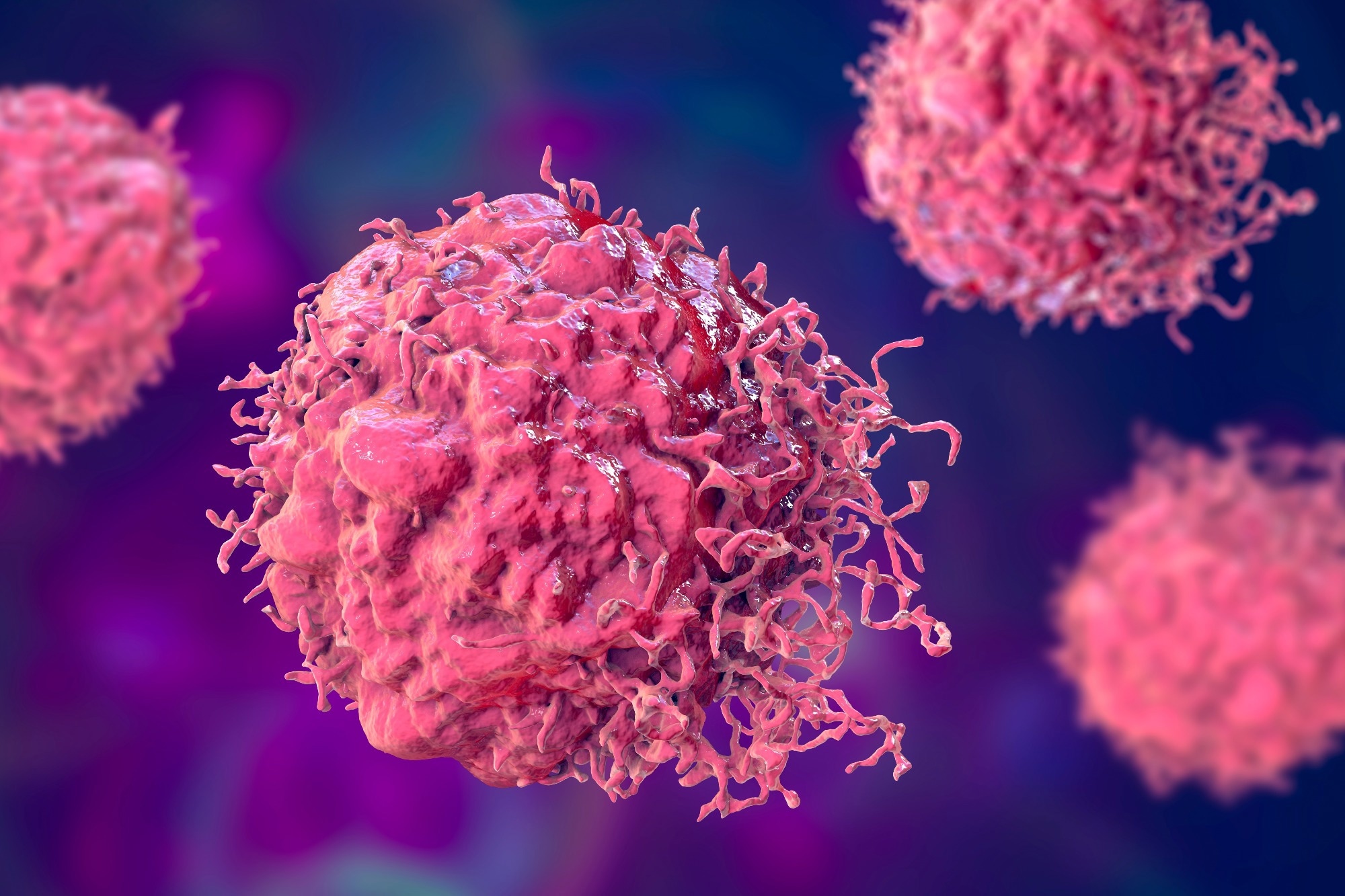Many epithelial tumors express trophoblast cell surface antigen 2 (TROP2), which is a membrane glycoprotein that is encoded by the tumor-associated calcium signal transducer 2 (TACSTD2) gene. This has led to the development of several antibody-drug conjugates (ADCs) targeting TROP2.
 Study: Epigenetically upregulating TROP2 and SLFN11 enhances therapeutic efficacy of TROP2 antibody drug conjugate sacitizumab govitecan. Image Credit: Kateryna Kon / Shutterstock.com
Study: Epigenetically upregulating TROP2 and SLFN11 enhances therapeutic efficacy of TROP2 antibody drug conjugate sacitizumab govitecan. Image Credit: Kateryna Kon / Shutterstock.com
Introduction
Sacituzumab govitecan (SG) is a TROP2 ADC that covalently binds to SN-38, an intermediate compound involved in the metabolism of the topoisomerase 1 inhibitor (TOP1) irinotecan. SG appears to be effective in the treatment of various cancers, including triple negative breast cancer (TNBC) with metastasis, as well as hormone receptor (HR) positive/HER2-negative breast cancer. Other potential targets include endometrial, prostate and small cell lung cancer.
SG was eligible for accelerated approval by the United States Food and Drug Administration (FDA) in 2020 for the treatment of advanced or metastatic TNBC, which eventually led to its full approval in 2021.
Clinical trials on SG demonstrated a 60% reduction in the risk of tumor progression or death as compared to other chemotherapeutic agents in metastatic TNBC. The median progression-free survival (PFS) and overall survival (OS) were both increased three- and two-fold, respectively, with the risk of death reduced by about 50% following the use of SG as compared to chemotherapy.
Subsequently, SG received approval for treating advanced or metastatic urothelial cancer. Currently, the use of SG in treating other types of cancer is being studied, as well as other candidate drugs that target TROP2. Nevertheless, it remains unclear how TROP2 expression affects patient outcomes following the use of SG and other TROP1-specific ADCs.
Previous studies have shown that the best effect of SG therapy is observed in patients with medium or high TROP2 expression levels. The current study examines the impact of DNA demethylating agents that produce epigenetic changes and, as a result, alter the expression of TROP2, on the anti-tumor activity of TROP2-targeted ADCs in tumors with low TROP2 expression levels.
Different breast cancer types express TROP2 differently
TROP2 is present almost universally in non-metaplastic breast cancer; however, it is often present at unusually low levels in metaplastic TNBCs, as is TACSTD2 transcription. TACSTD2 transcription is closely associated with E-cadherin (E-cad), which is an epithelial cell protein marker encoded by CDH1.
How can TROP2 expression be increased?
Zinc finger E-box binding homeobox 1 (ZEB1) is a regulatory transcription factor for the epithelial-mesenchymal transition (EMT) and is characteristic of tumor cells. The knockdown of ZEB1 is associated with increased TROP2 transcription and protein levels, thus reversing EMT. ZEB1 deficiency also increases E-cad levels.
TROP2 expression can also be increased by epigenetic modulators. Decitabine, for example, is a demethylator that reduces the expression of DNA methyltransferase, which subsequently reduces methylation of the TROP2 promoter, ultimately increasing the expression of TROP2.
TROP2 overexpression causes cells to have a more epithelial-like appearance and function, with reduced cell migration and a decreased tendency to grow freely without any anchoring base.
Both decitabine therapy and TROP2 overexpression by ZEB1 knockdown lead to a marked increase in SG efficacy against tumors. Decitabine also increases the expression of E-cad.
Higher SLFN11 increases SG and SN-38 efficacy
The mechanism of action of decitabine or SG may be due to their activation of DNA damage repair (DDR) pathway proteins through their effect on TROP2 levels. However, these agents produce synergistic effects on tumor cells, even when the increase in TROP2 is not significant, thus indicating that other mechanisms may be involved in this treatment response.
For example, decitabine increases Schlafen Family Member 11 (SLFN11) levels in cells, which is a marker of susceptibility to the TOP1 inhibitor and ADC payload SN-38. ZEB1 knockdown leads to higher SLFN11 levels and higher TROP2 expression. Thus, decitabine acts in combination with SG to inhibit breast cancer cells with low TROP2 or SLFN11 expression.
What are the implications?
There remains a lack of definitive treatment protocols available for metaplastic breast cancer. The current study suggests that TROP2 expression is absent or low in this type of cancer; however, treating this type of cancer with both decitabine and SG may increase the sensitivity of these cancer cells to SG.
TROP2 and SLFN11 expression can be epigenetically modulated and the combination of demethylating agent decitabine with TROP2 ADCs may represent a novel therapeutic approach for tumors with low TROP2 or SLFN11 expression.”
Additional studies are needed to evaluate the use of decitabine to synergistically support the antitumor activity of ADCs like SG that target TROP2 in tumors with low TROP2 or SLFN11 expression.